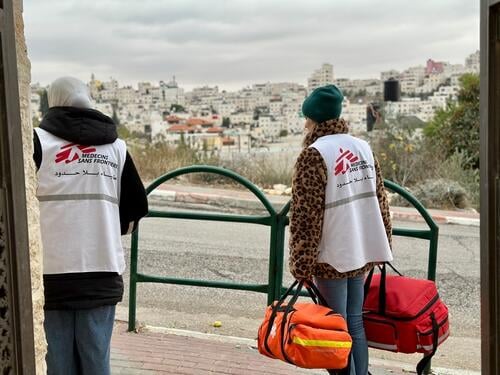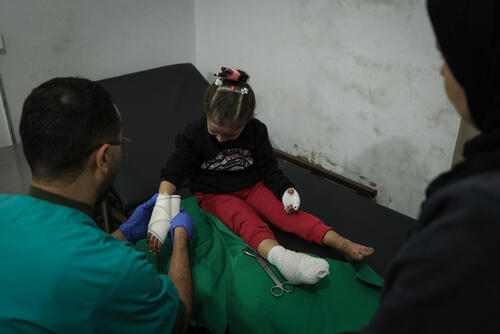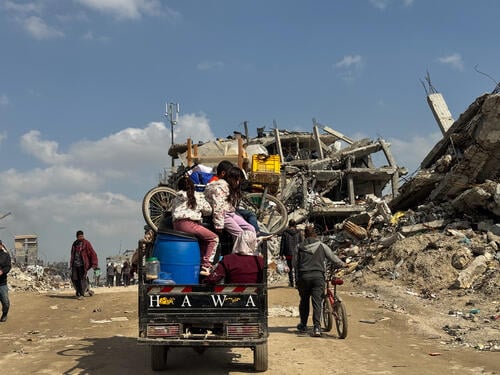- The mental and physical health of people living in the H2 area of Hebron, the West Bank, Palestine, are deteriorating under significant restrictions.
- The Israeli forces must stop implementing restrictive measures that impede access to basic services, including medical care.
Jerusalem – The residents of Hebron’s H2 area, one of the most restricted places in the West Bank, Palestine, suffocate under Israeli occupation, which has particularly worsened since the start of the war on Gaza on 7 October 2023. Médecins Sans Frontières (MSF) has been forced to suspend activities for several months inside H2. We are warning that access to healthcare is seriously compromised, and that people’s mental and physical health is at risk and deteriorating.
Since Israel’s war on the people of Gaza, restrictions by Israeli forces have drastically increased in the West Bank, including in Hebron. In December 2023, citing security concerns, Israeli authorities forced MSF teams to suspend activities for over five months in the Jaber neighbourhood, inside H2. As an alternative, our teams opened a mobile clinic close to the Jaber neighbourhood outside the checkpoint and in Tel Rumeida, accessible to people who can exit H2. But only a few people could cross the checkpoint to reach the clinic.
“Although we are now able to provide care in the MSF clinic in Jaber neighbourhood, access remains challenging as our staff can be searched and delayed at the checkpoints to enter the H2 area,” says Chloe Janssen, MSF project coordinator. “Access to medical care should never be arbitrarily denied, impeded or blocked.”

MSF frequently faces interruptions to their mobile clinic services, being barred from entering the area or encountering movement restrictions during Israeli public holidays. Normally, MSF provides mobile clinics in H2 twice per week, but from September to November 2024, we were forced to cancel these clinics 7 out of 26 times. MSF mobile clinics run twice a week and treat 60 to 70 patients per day, offering physical care alongside mental health support to help residents cope with the ongoing trauma of their circumstances.
These disruptions to care have profound effects on the community, cutting off access to vital healthcare services. Due to the prolonged restrictions, violence, harassment, and incitement of fear, MSF teams are seeing a dramatic decline in children’s mental health. MSF psychologists are seeing children who are reporting symptoms of trauma, including hyperactivity, bed-wetting, nightmares and academic struggle.
MSF calls on the Israeli forces to stop implementing restrictive measures that impede the ability of Palestinians to access basic services, including medical care. Israel must take all feasible measures to ensure that medical care remains unobstructed and accessible. Access to medical care must never be arbitrarily denied, impeded, or blocked.
Access to medical care should never be arbitrarily denied, impeded or blocked.Chloe Janssen, MSF project coordinator
The H2 area of Hebron, one of the most restricted areas in the West Bank, comprises about 20 per cent of the city and is emblematic of the challenges faced by Palestinians living under Israeli control. Home to approximately 7,000 Palestinians and several hundred Israeli settlers, this neighbourhood, which is the only place in the West Bank where Israeli settlers have settled within a Palestinian city, is ruled by strict movement regulations, systemic closures, and continuous violence.
“Palestine isn’t a case of post-traumatic stress disorder because the trauma never ends. Here, we’re talking about continuous and complex trauma,” says Lucia Uscategui, MSF’s mental health activity manager. “The entire population is affected. Even if the conflict and occupation ended tomorrow, the consequences would linger for years. But our work is about showing people they are not alone—that there is still some hope, even in the darkest times.”






